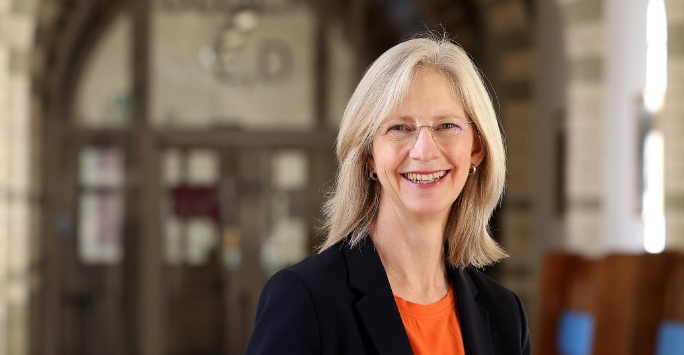
Don’t Quote Me provides an insight into Professor Sally Sheard, the Executive Dean of the Institute of Population Health. Sally is a health policy analyst and historian, with a research focus in the interface between expert advisers and policymakers.
Describe your role in 15 words:
I lead of team of academics researching and teaching about critical population health issues.
What does ‘success’ mean to you?
Making a difference to our understanding of health, and the factors that affect it. That’s been at the heart of my academic career, and I’m delighted to be in a position where I work with colleagues who have the same vision.
What two attributes are most important in your job?
The first is listening – sometimes people just need to know they have been heard, even if immediate solutions to their issues are not available. The Institute is large, and I pick up a lot of useful views through informal chats in corridors. I’m also a ‘matchmaker’ between researchers, communities and policymakers. At times I feel like an academic Cilla Black – I get a real buzz from seeing new research partnerships taking shape, and when the results inform our teaching and practice.
What do you find rewarding about your job?
Enabling others to achieve their potential – whether it’s my colleagues in the University, or in the communities we work with, especially in Liverpool.
What is your most frequently asked question?
Why don’t we learn from history? This has come up repeatedly during the Covid-19 pandemic. It’s not easy to draw direct parallels, but there have been several issues that would have benefited from an awareness of previous examples (and failures), especially around how the public trusts experts and politicians on the use of scientific evidence.
What are your three best qualities?
Caring, persuasion, tenacity.
What do you get passionate about?
Inequalities in health and in life more broadly. It’s frustrating to see so much evidence of what causes inequalities but not to be able to get it effectively used by policymakers. Health is fundamentally political and politicised, but that’s not fully acknowledged in our systems.
On a more personal level, I get passionate about looking at oak trees coming into leaf in the springtime, and about live music, whether it’s the Royal Liverpool Philharmonic Orchestra or solo performers such as PJ Harvey.
What is the worst job you have ever had?
I was a Saturday assistant in a hairdressing salon when I was in sixth form. I’ll always remember the smell of the perming solution on my hands. Perms were big in Lincoln in the 1980s!
What work issues keep you up at night?
How to find permanent posts for talented early career academics, finishing writing talks (usually for the following day), and worrying about not writing the books I’ve promised to do.
What are you reading at the moment?
Empire of Pain by Patrick Radden Keefe – a devastating account of how one family escaped scrutiny and caused pain, suffering and death for thousands of people through opioid misuse. I also just re-read Rebecca by Daphne du Maurier while on holiday in Cornwall – a brilliant and complex story that gets better each time I return to it.
My favourite quote is…
I have two: ‘Solvitur Ambulando’ (‘It is solved by walking’) attributed to Saint Augustine. I might alter it to ‘it is solved by gardening’ as I also find that helps with thinking issues through. I also try to remember ‘Life is what happens to you while you’re making other plans’ first used by Allen Saunders, but best known as used by John Lennon. It’s good to try to live more in the moment, but not easy.
If I had a million pounds I would…
Create a Health Parliament for Liverpool to increase the engagement of communities, especially their young people, in this fundamentally political issue. If I can have a small share of the million for personal use, I’d like a mature black mulberry tree please for a ready supply of one of the most delicious fruits.
My ideal dinner guest would be…
Brian Abel-Smith (1926-1996). I spent six years researching his pioneering role in shaping health policy in Britain and worldwide to write his biography. He left an enormous archive of work and personal papers, and I interviewed his family and colleagues, but I wish I’d been able to discuss what motivated some of his life choices.